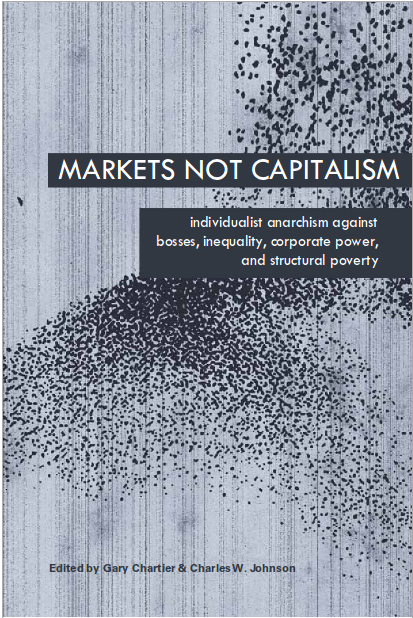Gene Sharp: From Dictatorship to Democracy: A Conceptual Framework for Liberation (1993/2011) [28 languages]
Filed under book | Tags: · democracy, politics, protest, revolution, social movements

From Dictatorship to Democracy is a serious introduction to the use of nonviolent action to topple dictatorships. Originally published in 1993 in Thailand for distribution among Burmese dissidents, this booklet has since been translated into many languages and spread worldwide.
Publisher Albert Einstein Institution, Boston, MA
ISBN 1880813092, 9781880813096 (English, 4th edition)
From Dictatorship to Democracy 2.0 (analysis by International Relations and Security Network, February 2012)
a short description of the history of this book (PDF, English)
author’s wikipedia page
publisher
google books
PDF (Afan Oromo, 2011)
PDF (Amharic, 2007)
PDF (Arabic, 2004)
PDF (Azeri, 2004)
PDF (Belarusian, 2005)
PDF (Burmese, 1994)
PDF (Chin/Burmese, 2001)
PDF (Simplified Mandarin/Chinese, 2004)
PDF (Traditional Mandarin/Chinese, 2004)
PDF (English, 1993/2010), audio book
PDF (Farsi, 2004)
PDF (French, 1993/2009)
PDF (German, 1993/2008)
PDF (Indonesian, 1997)
PDF (Italian, 2011)
PDF (Jing Paw/Burmese, 2001)
PDF (Karen/Burmese, 2001)
PDF (Khmer/Cambodian, 2005)
PDF (Kyrgyz, 2004)
PDF (Mon/Burmese, 2001)
PDF (Pashto, 2008)
PDF (Russian, 2005)
PDF (Serbian, 1999)
PDF (Spanish, 2003)
PDF (Tibetan, 2006)
PDF (Tigrigna, 2006)
PDF (Ukrainian, 2004)
PDF (Vietnamese, 2005)
Gary Chartier, Charles W. Johnson (eds.): Markets Not Capitalism: Individualist Anarchism Against Bosses, Inequality, Corporate Power, and Structural Poverty (2011)
Filed under book | Tags: · activism, anarchism, capitalism, communism, economics, economy, market, neoliberalism, protest, revolution, socialism

Individualist anarchists believe in mutual exchange, not economic privilege. They believe in freed markets, not capitalism. They defend a distinctive response to the challenges of ending global capitalism and achieving social justice: eliminate the political privileges that prop up capitalists.
Massive concentrations of wealth, rigid economic hierarchies, and unsustainable modes of production are not the results of the market form, but of markets deformed and rigged by a network of state-secured controls and privileges to the business class. Markets Not Capitalism explores the gap between radically freed markets and the capitalist-controlled markets that prevail today. It explains how liberating market exchange from state capitalist privilege can abolish structural poverty, help working people take control over the conditions of their labor, and redistribute wealth and social power.
Featuring discussions of socialism, capitalism, markets, ownership, labor struggle, grassroots privatization, intellectual property, health care, racism, sexism, and environmental issues, this unique collection brings together classic essays by leading figures in the anarchist tradition, including Proudhon and Voltairine de Cleyre, and such contemporary innovators as Kevin Carson and Roderick Long. It introduces an eye-opening approach to radical social thought, rooted equally in libertarian socialism and market anarchism.
Publisher Minor Compositions, an imprint of Autonomedia, November 2011
ISBN 978-1-57027-242-4
440 pages
PDF (added on 2014-12-22)
Scribd
David Graeber: Debt: The First 5,000 Years (2011–) [EN, CZ, RU]
Filed under book | Tags: · anthropology, capitalism, debt, economics, economy, finance, financial crisis, history, market, money, politics, revolution

“Before there was money, there was debt.
Every economics textbook says the same thing: Money was invented to replace onerous and complicated barter system–to relieve ancient people from having to haul their goods to market. The problem with this version of history? There’s not a shred of evidence to support it.
Here anthropologist David Graeber presents a stunning reversal of conventional wisdom. He shows that for more than 5,000 years, since the beginning of the agrarian empires, humans have used elaborate credit systems. It is in this era, Graeber shows, that we also first encounter a society divided into debtors and creditors.
With the passage of time, however, virtual credit money was replaced by gold and silver coins–and the system as a whole began to decline. Interest rates spiked and the indebted became slaves. And the system perpetuated itself with tremendously violent consequences, with only the rare intervention of kings and churches keeping the system from spiraling out of control. Debt: The First 5,000 Years is a fascinating chronicle of this little known history–as well as how it has defined human history, and what it means for the credit crisis of the present day and the future of our economy.”
Publisher Melville House, July 2011
ISBN 1933633867, 9781933633862
542 pages
Original essay (Mute, February 2009)
Illustrated essay with excerpts from the book (Triple Canopy, July 2010)
Video interview on Greece (Democracy Now!, July 2011)
Video interview (PBS: Need to Know, August 2011)
Review: Maryam Monalisa Gharavi (Social Text, 2011).
Debt: The First 5,000 Years (English, 2011, updated on 2020-4-10)
Dluh: prvních 5000 let (Czech, trans. Lenka Beranová, 2012, 71 MB, added on 2020-4-10)
Dolg: pervyye 5000 let istorii (Russian, trans. A. Dunayev, 2015, 18 MB, added on 2020-4-10)

